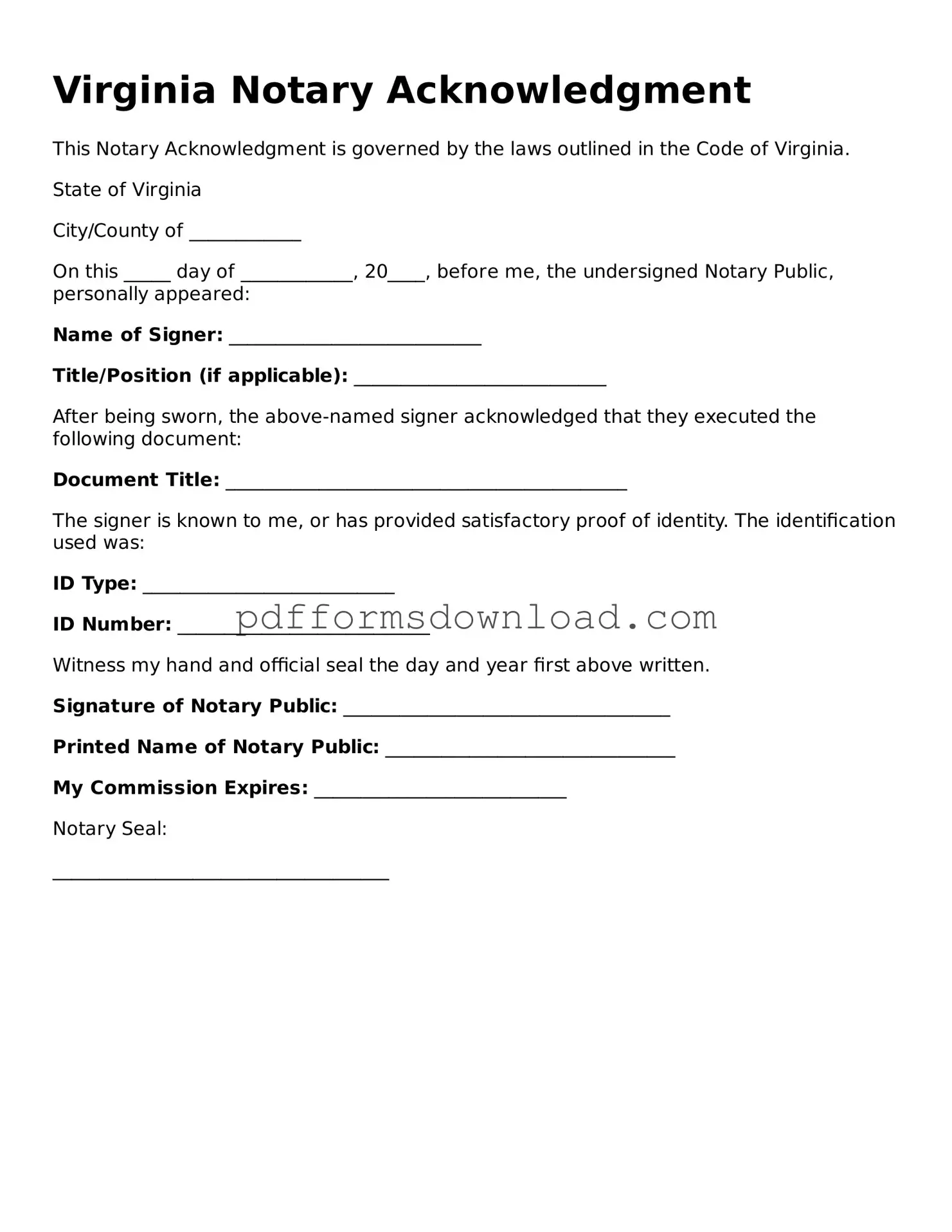Printable Virginia Notary Acknowledgement Form
The Virginia Notary Acknowledgement form serves as a formal declaration that a signer has willingly executed a document in the presence of a notary public. This form provides essential proof of identity and intent, ensuring the authenticity of signatures. To proceed with your notarial needs, fill out the form by clicking the button below.
Make This Document Now

Printable Virginia Notary Acknowledgement Form
Make This Document Now

Make This Document Now
or
Free PDF File
Your form is almost ready
Complete your Notary Acknowledgement online — edit, save, and download easily.